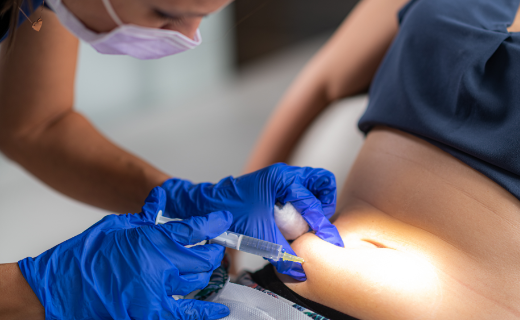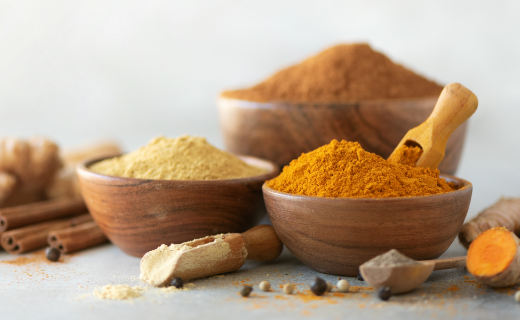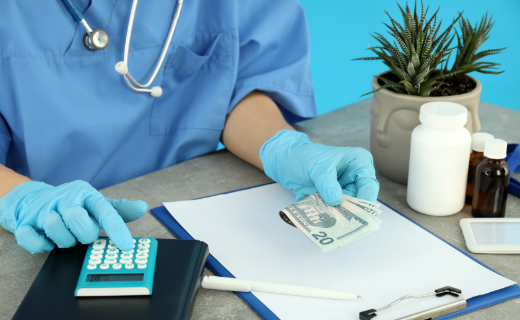
Abnehmen durch Injektionslipolyse?
Die Injektionslipoyse ist eine beliebte Behandlung in der ästhetischen Medizin, welche zur gezielten Beseitigung kleiner bis mittlerer Fettpölsterchen angewandt…

Antioxidants aid in the prevention of the development of chronic diseases. Common examples include compounds derived specifically from plants, e.g. curcumin from the root of a spice called turmeric, or carnosol, which is obtained from rosemary or sage.
Heme oxygenase 1, also known as HO-1, is an enzyme that catalyzes the degradation of heme and is crucial to the metabolism of hemoglobin – the oxygen-carrying molecule of the blood. HO-1 helps to reduce oxidative stress and therefore possesses anti-inflammatory effects. It is regulated by short DNA sequences known as antioxidant response elements, or ARE’s, which are activated during periods of oxidative stress.
However, other mechanisms of action exist that can also activate HO-1. One such example is polyphenol, a substance found in herbal products. Polyphenols and substances like it can up-regulate the expression of the HO-1 gene and therefore directly induce the desired anti-inflammatory effect.
This is where curcumin comes into play. The course of many neurological, cardiovascular, metabolic, endocrine, as well as dermatological diseases can be positively influenced by the broad pharmacological effects of curcumin (2).
Pure curcumin has poor bioavailability, that is, the amount actually absorbed by the body through the gastrointestinal tract is very low. However, the use of curcumin nanoparticles or phospholipid complexes improves bioavailability and increases the therapeutic potential.
In an in vitro study in psoriasis patients by Ford AR et al (1), it has been shown that carnosol and curcumin can inhibit the maturation of dendritic cells and suppress the release of proinflammatory cytokines, that is, substances that cause inflammation. In addition, the study showed that the activation of important white blood cells, T-cells in this case, was also inhibited.
Important pro-inflammatory cytokines, such as IL-17, IL-22, and interferon gamma, are inhibited by curcumin. Another publication demonstrating these effects can be found in the work of Campbell NK and colleagues (3).
In conclusion, the results of scientifically published studies suggest that curcumin has positive effects on inflammatory processes in vitro and can therefore also have positive effects within our bodies when taken as a nutritional supplement.

Abnehmen durch Injektionslipolyse?
Die Injektionslipoyse ist eine beliebte Behandlung in der ästhetischen Medizin, welche zur gezielten Beseitigung kleiner bis mittlerer Fettpölsterchen angewandt…

Antioxidants aid in the prevention of the development of chronic diseases. Common examples include compounds derived specifically from plants…

Ärztliches Honorar in der Ästhetik
Da es sich bei ästhetischen Behandlungen ausschließlich um Privatleistungen handelt, sind diese auch für die behandelnden Ärzte durchaus profitabel. Doch was ver…
1. Campbell NK, Fitzgerald HK, MalaraA, Hambly R, Sweeney CM, Kirby B, Fletcher JM, Dunne A. Naturally derived Heme-Oxygenase 1 inducers attenuate inflammatory responses in human dendritic cells and T cell: relevance for psoriasis treatment. Sci Rep. 2018 Jul 6;8(1):10287
2. Patel SS, Acharya A, Ray RS, Agrawal R, Raghuwanshi R, Jain P. Cellular and molecular mechanisms of curcumin in prevention and treatment of disease. Crit Rev Food Sci Nutr. 2019
3. Ford A, Siegel M, Bagel J, CordoroKM, Garg A, Gottlieb A, Green LJ, Gudjonsson JE, Koo J, Lebwohl M, Liao W, Mandelin AM 2nd, Markenson JA, Mehta N, Merola JF, Prussick R, Ryan C, Schwartzman S, Siegel EL, Van Voorhees AS, Wu JJ, Armstrong AW. Dietary recommendations for adults with poriasis or psoriatic arthritis from the medical board of the National Psoriasis Foundation: A systematic review. JAMA Dermatol. 2018 Aug 1;154(8):934-950.


Erfahre als Erster von Neuigkeiten in der ästhetischen Medizin und profitiere von exklusiven Angeboten sowie Tipps von unseren erfahrenen Dozenten.

We will call you back soon